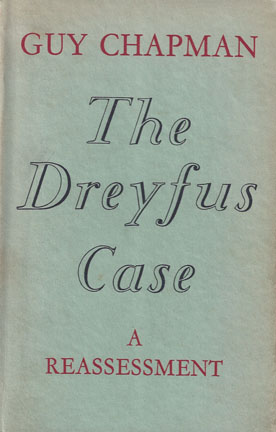
Out of Print
The Dreyfus Case, the 'Affair,' in which an innocent man was wrongly condemned for betraying military secrets to Germany and was sent to solitary confinement on a lump of rock in the Caribbean, is one of the most complex and fascinating episodes in modern French history. For the controversy over the revision of the unhappy victim's case in the end brought about a political and social revolution.
Guy Chapman, who last year retired from the chair of Modern History at the University of Leeds, holds that the conventional histories of the case have been seriously distorted by propaganda. While there is no doubt that Dreyfus was innocent, much more is to be said for the men who sent him to Devil's Island than is allowed.
Further, the great Dreyfusard theme of a clerico-military plot against the Republic has no foundations; the legend of a noble democracy rising in defence of justice masks in reality skilful manoeuvring by politicians who in fact for long opposed revision of the case.
The complicated story with its episodes of forgery, perjury, persecution and suicide, with noisy trials and noisier debates, with its farcical attempts on the security of the State, has been carefully elucidated. The author's conclusion is that the twists and turns of chance and the minor activities of little men manufacture great events, and that the causes show no visible relation to the consequences.